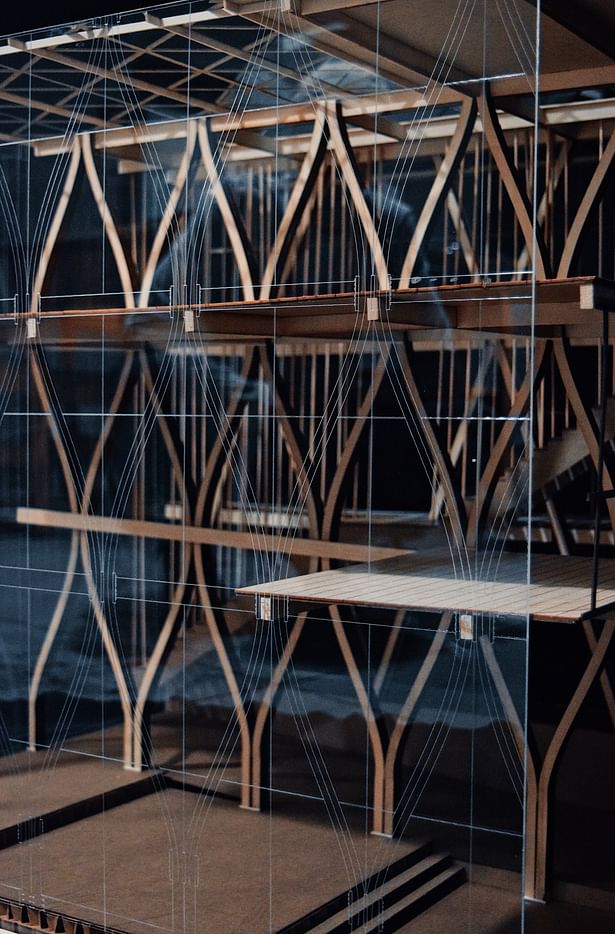

The objective for students was to design a maker space located in Lowell, MA, that both ignite an economic spur for the city and engages a wide range of demographics within the community.
The Tandeminium bridges the gap between car-centric and human-centric design on the roadway. The Bicycle Makerspace at Lowell addresses the demand to create a hub for bicyclists to engage as a maker and become better educated in bike culture.
Bicycle typology is represented in the building’s structural design and tectonic facades. The building is a well-oiled machine in how every system works in tandem with each other: three separately conditioned zones resemble the three system aggregates of the building; the atrium, the maker-space shed, and the hybrid programs. In an effort to decrease our carbon footprint, the Tandeminium challenges the greater and central residents of Lowell to negotiate through eye contact instead of with the traffic lights.
As a node for bicycle enthusiasts, the massing configuration was important to signal to those on the street where bicycles entered versus where people can enter the makerspace. The maker shed is located facing the canal side of the site because of its adjacency to the bike path.
The program is a blank canvas, or “scatter-shop” approach. The strategy was for a malleable non-complex program to enable multiple configurations within the maker shed. As developed from the bay prototype, the building’s three system aggregates: the atrium, maker, and hybrid; required three different systems. The circulatory zone would be our intermediate zone that acted similar to a vestibule, but central to our building. It is the transition between the surveillance of the maker shed, and the more intimate and private spaces within the serving programs.
A cinematic building: The user gains their own experience through visual engagement. The tectonic body allows an ethereal expression of light to become characteristic of the curtain wall facade; at night, light pierces the canal at night like a lantern on the water.
Humans behave according to design, and we have forgotten humans in design. It is a felt need in the community of Lowell for its members to slow down, and look at their city from a different speed.
Status: School Project
Location: Lowell, MA, US
My Role: Partnership; Concept development, rhino model, physical model construction, model photography,, cut files, presentation decks & boards
Additional Credits: Year - Summer 2022
Professor - John Ellis Studio 06: Comprehensive Design
Partner - Gabriel Blake